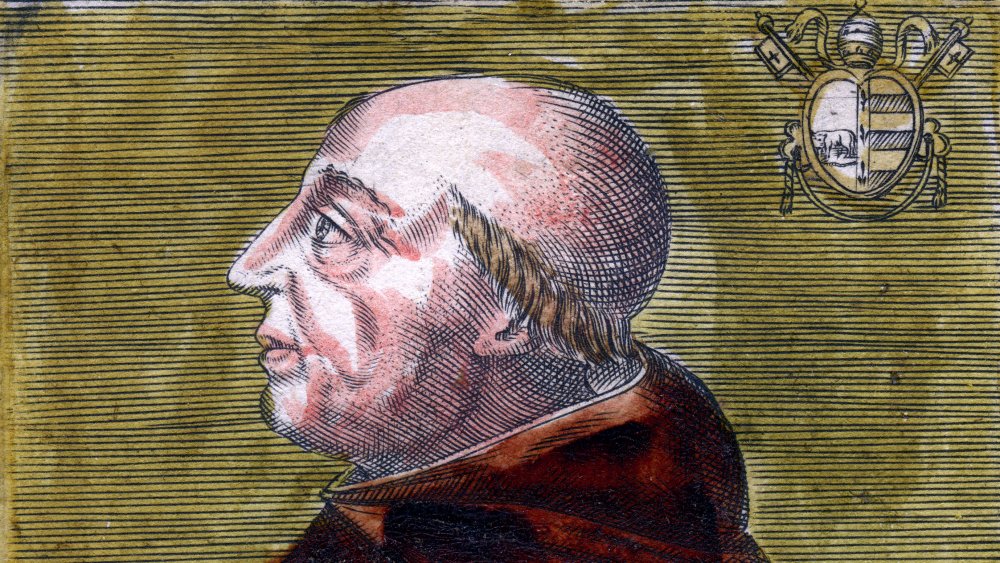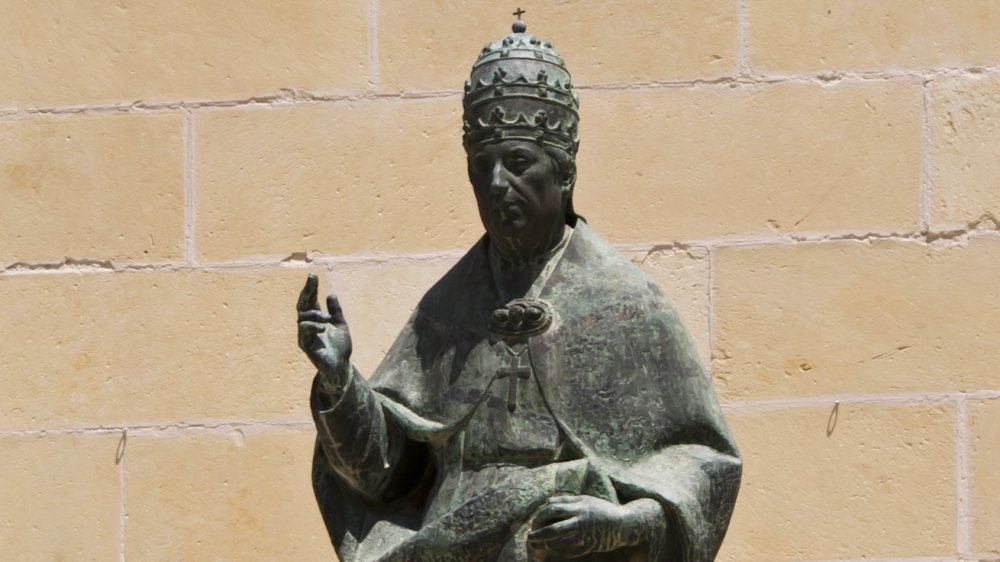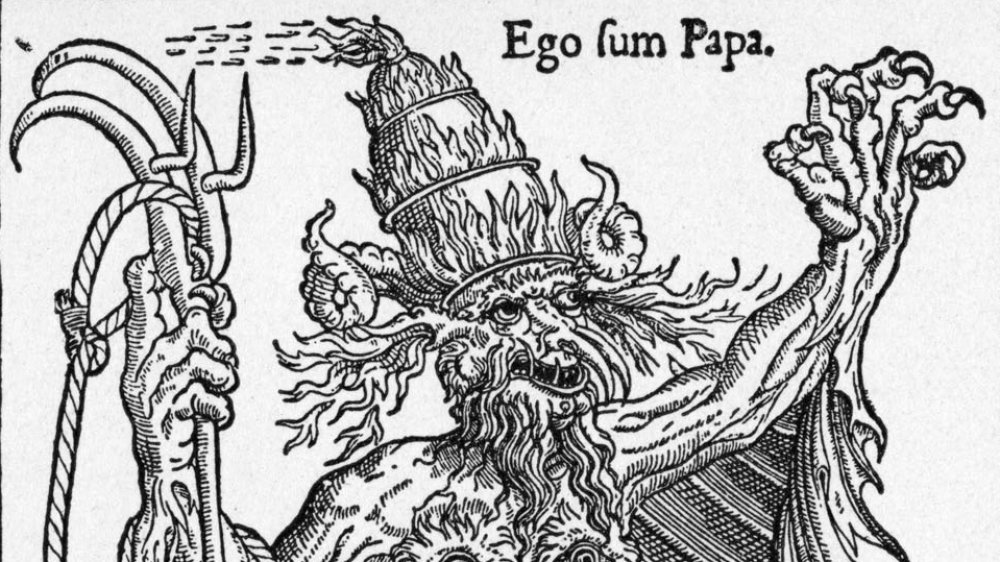The Scandalous Life Of Pope Alexander VI
Sir Galahad, according to the poet Alfred, Lord Tennyson, declaimed, "My strength is as the strength of 10, because my heart is pure." We hate to quibble, but lack of heart purity doesn't seem to stop a lot of people. Like the man said: With great power comes great opportunity. Few families in history understood this better than the Borgias, generations of major players in Italy's political history. While there's all kinds of power to be had in this old world of ours, few have risen quite so far as Rodrigo Borgia: the future Pope Alexander VI.
In those days — he was born in 1431 — the Catholic Church was a significant political power as well as an ecclesiastical authority. At the beginning of the European Renaissance, the Papal States were a military force as well, controlled by the pope — in effect, a king. As Eyewitness to History phrases it in a superb bit of understatement, "This was not the papacy's finest hour."
He bribed his way into the papacy
Borgia is generally believed to have ascended to the papal throne the old-fashioned way: by bribing the electors. You could call it the family business, in a way — his uncle had reigned before him as Pope Callixtus III, reports History Today, and was viewed as "monstrously corrupt." But what's family for, if not to out-perform your ancestors? And Rodrigo most assuredly did his best to raise (or lower, depending on your point of view) the bar on papal (mis)behavior.
All That's Interesting provides a tawdry little list of accusations against Rodrigo. Elected pope in 1492, he took the name Alexander (the sixth to do so). He brought with him a reputation for lusty living — he admitted to fathering seven illegitimate children with at least two different mistresses, both of them married women, reports Factinate; some historians place the number as high as 12. (The children, not the mistresses. Though that might not be impossible. Rodrigo was busy.) He also brought with him one of those children, Cesare, a son he appointed as a cardinal — basically, a prince of the church and future papal elector. Lucretia Borgia was also his, and it was widely rumored that Rodrigo fathered at least one of her children. (Other rumors put the blame on Cesare.)
People noticed what was going on
Alexander sat on top of the papal treasuries, and proceeded to empty them. He was constantly in need of money — for the aforementioned bribes, for a lavish lifestyle, for debauchery. For parties.
Because there ain't no party like a Borgia party. In 1501, Alexander and Cesare hosted what's known as the Banquet of Chestnuts in the Apostolic Palace of the Vatican. Part of the festivities included a competition between the 50 sex workers who were hired for the occasion. And it wasn't unique. A contemporary account relates, "Who could fail to be horrified by the...terrible, monstrous acts of lechery that are committed openly in his home, with no respect for God or man? Rapes and acts of incest are countless...."
Alexander VI died in 1503, the last (so far) of the Borgia popes. Cesare and Lucrezia both went on to earn their own unsavory and deadly reputations — he as a ruthless military tactician, she as a poisoner. (Buffalo Bill Cody named his favorite rifle after her, says the Buffalo Bill Center of the West.) But after all — what's family for, if not to out-perform your ancestors?


